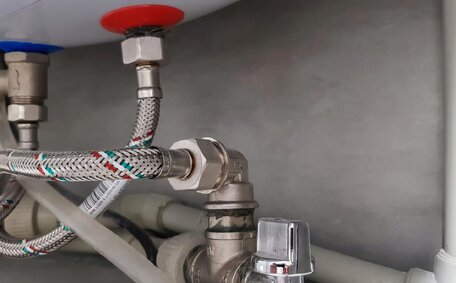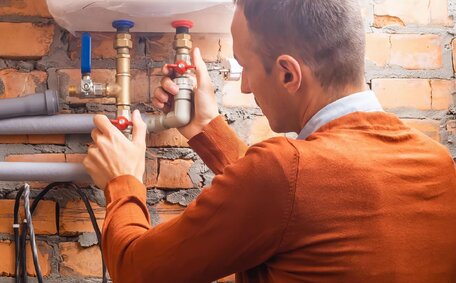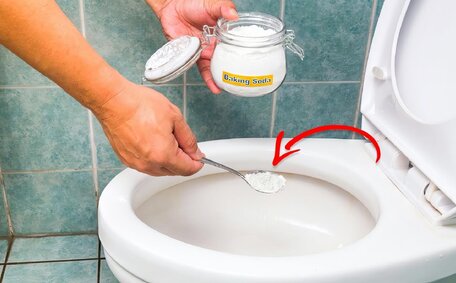Identifying Common Gas Fitting Problems
Various issues may arise with domestic or commercial gas systems, including fittings, lines, and appliances. Early recognition of potential gas problems is key for ensuring safety. Be vigilant for common gas fitting issues such as:
- Gas leaks - A gas leak is very dangerous and can be identified by the smell of rotten eggs. Other signs include pilot lights frequently blowing out, increased gas bills without reason, or dead vegetation in one area outside,
- - Blockages in gas lines restrict gas flow, manifesting as inadequately heated ovens or an inefficient gas hot water system.
- Valve and regulator defects - Faulty gas valves and regulators can lead to inconsistent appliance operation, fluctuating temperatures, or water pressure problems.
- Carbon monoxide leaks - Carbon monoxide is odourless and exposure can be fatal. Signs of a leak include headaches, dizziness or flu-like symptoms when appliances are operating.
While some indicators of gas fitting problems can be recognised by homeowners, others warrant expert evaluation by a dedicated plumbing gas fitting professional. Unusual noises, atypical appliance operation or signs of gas leaks should prompt immediate professional attention. Expert gas fitters are equipped to diagnose and rectify these issues promptly.
Signs of Gas Leaks and How to Detect Them
Gas leaks present significant dangers and need urgent action. Be aware of the following warning signs that hint towards a gas leak:
- A strong smell of rotten eggs or sulphur
- a hissing or whistling sound emanating from gas appliances or your gas line
- Dead or dying vegetation near underground type gas pipelines
- Bubbles rising in water puddles or wet areas above gas lines
- Flames coming from the ground or burning above gas lines
- Dirt blowing into the air above gas lines
- Pilot lights frequently blowing out
- Unusual spikes in gas bills
A soapy water solution applied to suspected areas can reveal gas leaks through bubbling. Never ignore gas leaks; take immediate action to secure the safety of your environment.
If you can smell gas or detect any signs of gas leaks, vacate the premises immediately and contact experts who offer same day services for identifying and fixing the leak.
Dangers of Gas Leaks
Gas leaks pose severe and potentially deadly dangers that require urgent attention. The main risks include:
- Natural gas poisoning - Natural gas is odourless, but an additive gives it the characteristic smell rotten eggs to help detect leaks. Inhaling natural gas can cause dizziness, nausea, unconsciousness and even death through asphyxiation or an explosion.
- Fire and explosion hazards - Natural gas is highly flammable and leaks can lead to deadly fires and explosions that put properties and lives at risk. Even the smallest spark has the potential to ignite a gas leak.
- Carbon monoxide poisoning - Faulty gas appliances can leak carbon monoxide, a poisonous gas you can’t see or smell that causes flu-like symptoms. Prolonged exposure is fatal.
If a gas leak is suspected in your house, evacuate immediately and contact the fire brigade and a professional gas fitting service. Never disregard signs of a leak - swift identification by a plumber gas expert and acting swiftly to ensure safety with repairs is crucial for averting tragic incidents.
Causes of Gas Fitting Issues
Multifarious factors can contribute to gas fitting problems in residential and commercial settings:
- Wear and tear - Over time, gas pipes and fittings can corrode or become damaged from regular use, leading to leaks or blockages.
- Improper gas connection installation - Gas connections installed improperly by unqualified technicians are a considerable source of problems eventually.
- Damage from construction - Nearby excavation work, digging or earth movement can stress underground gas pipes and inadvertently cause cracks or shifts.
- Ageing gas lines - Old galvanised iron or steel pipes corrode internally over decades of use, eventually developing leaks.
- Inadequate maintenance - Failure to adequately service and maintain gas appliances and fittings by a qualified gas professional can result in preventable problems.
- Seismic activity - Earth tremors and seismic events may jar or fracture gas plumbing infrastructure, resulting in hazardous leaks.
- Rodent damage - Rats and mice are known to gnaw through gas fittings and pipes, their sharp teeth puncturing lines.
Many of your plumbing problems arise from ageing infrastructure subject to wear and environmental conditions over time. Ensure your systems are aptly installed and consistently maintained to lessen the likelihood of plumbing issues.
Blockages
Blockages necessitating gas line repair can critically impede gas delivery to appliances. Accumulated rust, sediment, and debris can clog pipes over time, restricting or entirely halting gas supply.
Common signs of a gas line blockage include:
- Delayed appliance ignition
- Weak burner flames
- Reduction in the efficiency of your hot water system
- Ovens and cooktops heating slowly or unevenly
Preventing blockages involves periodic inspections and maintenance of your gas fitting by licensed gas fitters to clear pipe interiors. Regular checks and necessary replacements of old rust-prone metal gas lines help avoid blockages. Additionally, cleaning major appliances reduces debris accumulation in pipes.
If a gas line blockage is suspected, enlist a skilled technician to locate and clear the obstruction. Always avoid DIY repairs; professional assessment and repair are essential.
Valve and Pressure Defects
Gas valve defects and regulator issues control and regulate gas flow rates and pressure supplied to household appliances. Defective valves and regulators are among the most common causes of problems with your gas appliances.
Signs of faulty gas valves and regulators include:
- Fluctuating appliance burner strength
- Intermittent pilot light outages
- Irregular water heating temperatures
- Abnormal gas appliance functionality
Valve and regulator issues often arise from wear and tear, damage, or calibration mishaps. Seals may deteriorate, settings can shift, and parts may become blocked over time. The result is unstable gas flow and pressure delivery.
Unchecked defective valves pose risks, including gas leaks and carbon monoxide exposure. Updating to modern regulators aligns older systems with contemporary safety standards.
To resolve valve or regulator issues, engage a licensed gas fitter for assessments and repairs, ensuring appliance functionality and safety.
Troubleshooting Tips for Homeowners
There are some basic troubleshooting steps homeowners can take for minor gas fitting issues before calling in a professional:
- Conduct visual inspections of all gas lines and connections look for any signs of damage, wear or loose fittings.
- Regularly check appliance performance, noting any ignition issues, weak flames or temperature fluctuations, then safely turn off gas supplies if needed.
- Monitor your gas meter on the bills for any spikes that may indicate leaks.
- Investigate any strange sounds like hissing coming from gas appliances or pipework.
- If gas smells are detected, turn off the main gas supply immediately and ventilate the area.
Although these steps can help pinpoint issues, gas systems present significant risks. Repairs or modifications must only be undertaken by a licensed professional gas fitter for safety and reliability. If problems or safety concerns persist with your gas fittings, promptly seek technician assistance for inspection and servicing.
There are some basic troubleshooting steps homeowners can take for minor gas fitting issues before age, wear or loose fittings. \
Check appliance performance frequently take note if ignition ii> \Investigate any strange sounds like hissing coming from gas appliances or pipework. \
If gas smells are detected, turn off the main gas supply immediately and ventilate the area. \
When Professional Help is Needed
Utilising professional gas fitting services for installations, maintenance, and repairs is imperative, with their extensive training and strict adherence to safety regulations providing invaluable assurance.
Situations wherein the safety your family is at risk, a professional should be contacted include:
- Installation of new gas appliances or infrastructure
- Detection of a gas leak or strange smells
- Gas appliance malfunctions like pilot light or ignition failure
- Major decreases in appliance performance or new hot water systems efficiency
- Strange sounds coming from gas pipes or appliances
- Damage visible on gas lines, valves or fittings
It is crucial to utilise professional gas fitting services for installation, maintenance and repairs.
\\\ - Installation of new gas appliances or infrastructure
\\\ - Detection of a gas leak or strange smells
\\\ - Gas appliance malfunctions like pilot ligs, valves or fittings
\\\
Gas Certification and Safety Checks
Homeowners should have their gas systems certified and safety checked by a licensed professional every 2 years, encompassing a thorough assessment for leaks, corrosion, blockages, and other potential safety hazards.
The gas certification process entails detailed checks of the following aspects:
- Flues and chimneys are clear and discharging outdoors safely
- Gas pressure and flow meet required levels
Upon completion, A Gas Compliance Certificate is issued to certify that all leakage checks adhere to regulations and AS/NZ 5601.1 standards. This certification is recognised for 2 years.
Regular gas safety audits are crucial to ensure that all your gas systems hazards are identified, keeping your system operating safely. Any issues identified can also be addressed promptly before posing significant hazards. Don’t wait until appliances show problems - be proactive in maintaining safety through regular professional assessments.
It is crucial for homeowners to have gas systems checked by a licenced professional at least once a year as recommended under Australian Standards. This involves everything you need know about gas risks, through assessment to identify leaks, corrosion, blockages and other issues that could pose safety risks.






